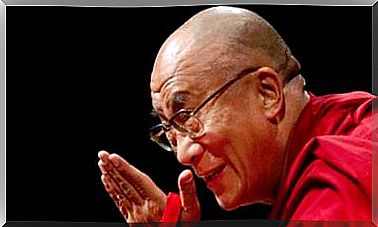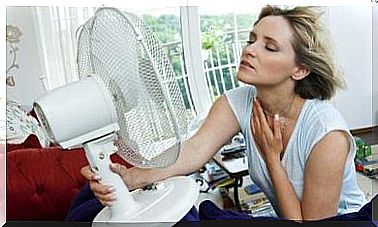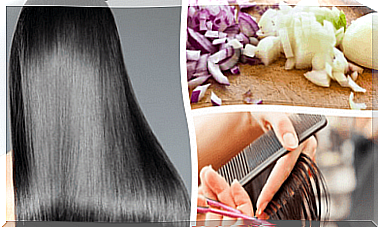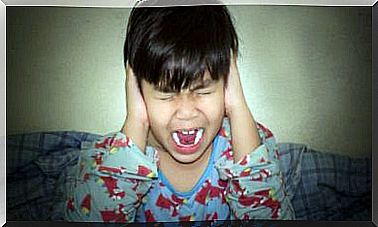Tips About Pulling The Wisdom Teeth
After pulling the wisdom teeth, the most important thing is to ensure that the oral cavity is properly cleaned and that appropriate care is taken. It also takes a certain amount of caution when it comes to food intake. Pulling wisdom teeth is painful. But often this measure is necessary and inevitable.
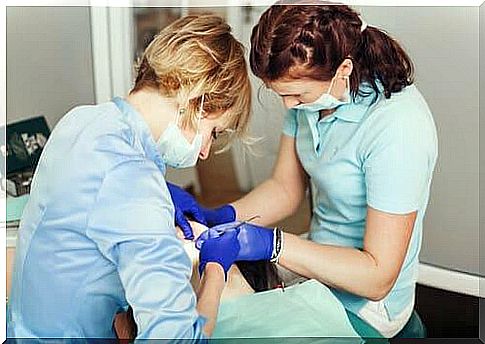
You may feel like many people: going to the dentist is not one of the things they like to do. Because they fear that the treatment carried out could be painful. This also is pulling wisdom teeth often a reason for anxiety. But it is precisely this measure that is sometimes unavoidable. Because the wisdom teeth in particular can lead to complaints in some cases.
These are teeth that usually only develop and break through between the ages of 17 and 25 years. But in some people they never develop at all. When they occur, they can be found in the last position in the dentition, i.e. at the very back.
It is true that the eruption of the wisdom teeth can also go unnoticed. But in most cases this process is accompanied by pain. Their emergence can cause them to press on the rest of the molars, creating tension in the dentition. Then pulling the wisdom teeth is often inevitable.
In this article, we’ll explain everything you need to know about wisdom teeth pulling. We’ll also give you a few tips on what to watch out for after the procedure to avoid complications.
Why may wisdom teeth pulling be necessary?
As we have already mentioned, wisdom teeth usually develop in young adulthood. That is, when the remaining teeth are already fully developed. As a result, many people do not have enough space in their teeth so that these teeth can still find space and develop normally.
Therefore it can happen that the growing wisdom teeth exert strong pressure on the respective neighboring tooth. Or they can grow into the back of the jaw. It also happens that they do not break through properly.
All of this causes a number of inconveniences and complications. Above all, this includes the severe pain that most people fear. The gums can also become inflamed. And the neighboring teeth can be damaged. In addition, it often happens that the entire area around the wisdom tooth in question becomes inflamed.
In addition , people who have little space in their teeth notice how their entire set of teeth has changed. The pressure exerted by the wisdom teeth can ultimately move the remaining teeth from their original positions. Even in cases where the wisdom teeth initially erupt with no further discomfort, it is possible that problems may arise over time.
Because they are at the very back of the dentition, it is very common that they are affected by tooth decay, or that food residues accumulate behind them. For all of these reasons, wisdom teeth pulling is often appropriate.
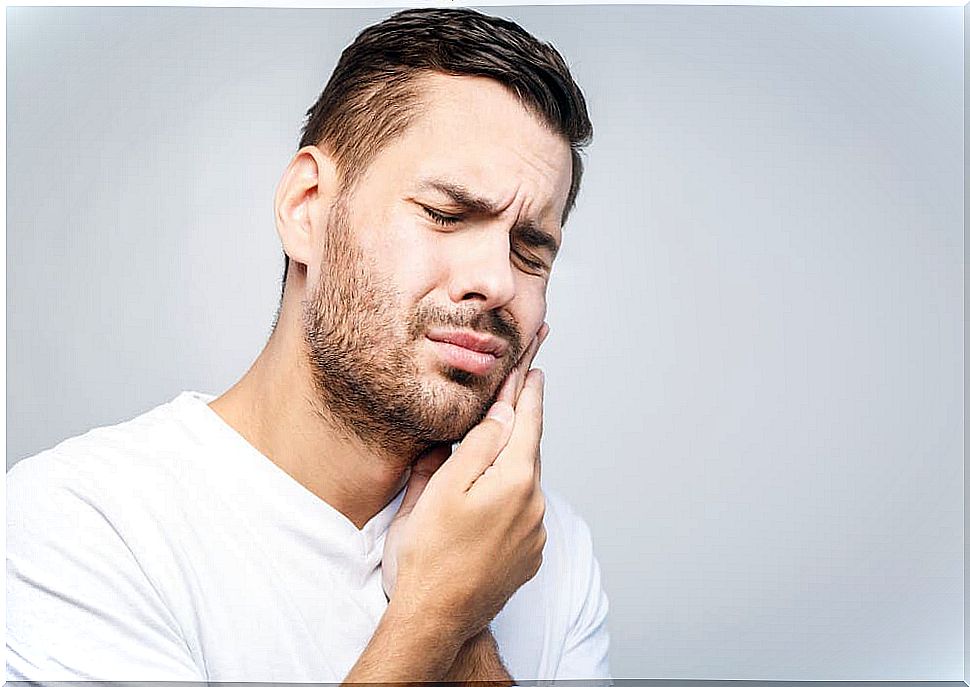
Tips for pulling wisdom teeth
As we have just seen: wisdom teeth can cause pain in the jaw or even headaches. In this context, bad breath or swollen gums often occur. The extraction of the wisdom teeth is done by an outpatient procedure. This takes about an hour and a half. Local anesthesia is usually used for this.
Immediately after the wisdom teeth are pulled, dentists recommend certain measures to ensure a smooth recovery. First of all, it is important to use pain relievers. Because that way you can relieve the pain. You can also take these remedies preventively, in order to prevent pain from occurring in the first place.
For this purpose, you can take, for example, non-steroidal anti-inflammatory drugs (NSAIDs) such as paracetamol or ibuprofen. It is also recommended to cool the cheek with a cold compress. Because this is how you can reduce the swelling.
Other tips are:
- You shouldn’t spit out immediately after the operation. Because in this way you prevent the wound from bleeding.
- It is also important that you take the day off and take it easy. So you shouldn’t do very strenuous activities.
- As for your meals , soft foods are recommended for the first 24 hours after the procedure . It’s also important to drink plenty of water. And you should avoid hot drinks, alcohol, and coffee.
- Likewise, you shouldn’t smoke or use chewing tobacco. Because both can negatively affect the healing process.
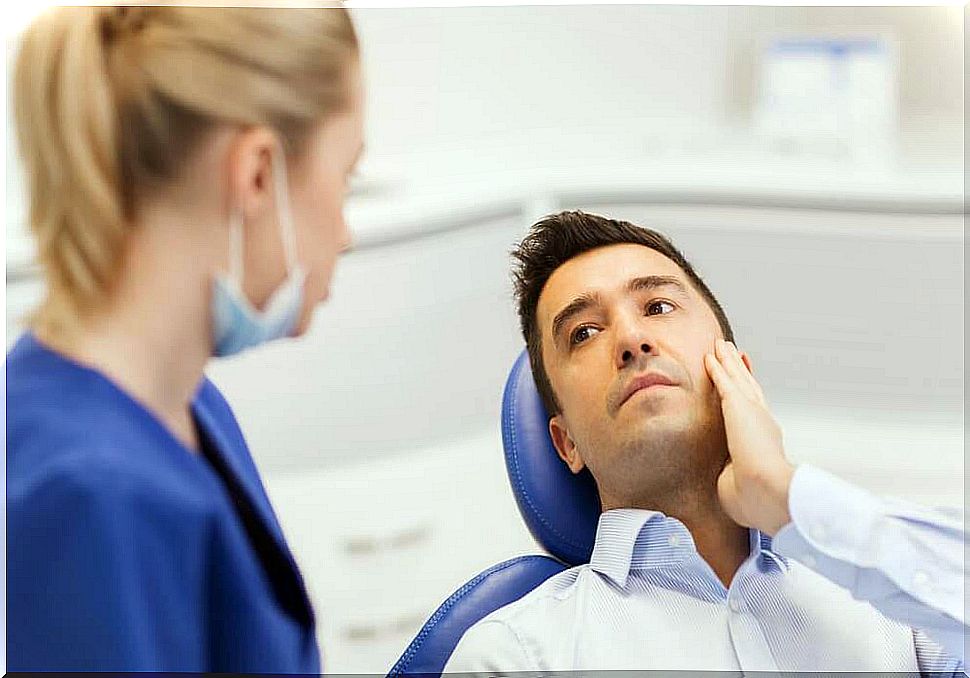
Most often , the attending dentist closes the wound by sewing it with a stitch or two. While this may seem uncomfortable, the affected area needs to be properly cleaned. However, it is best not to brush your teeth in the first few hours after the procedure. It is also better not to rinse your mouth.
A little later, however, it is quite necessary to clean your mouth thoroughly. Of course, you have to be particularly careful around the wound. So you should try to be very careful when touching this area with the toothbrush. Some dentists recommend salt water rinses to improve healing.
Conclusion
Most people fear pulling their wisdom teeth. Because the procedure is usually associated with pain and discomfort. But if you follow the advice of your dentist exactly and go for regular checkups, there should be no complications.
Not all people have wisdom teeth. And not everyone who has them suffers from painful ailments. It is always best to have regular checks. This is the only way the dentist can determine at an early stage whether the condition of your dentition and your teeth are in order. Or whether treatment is necessary.

